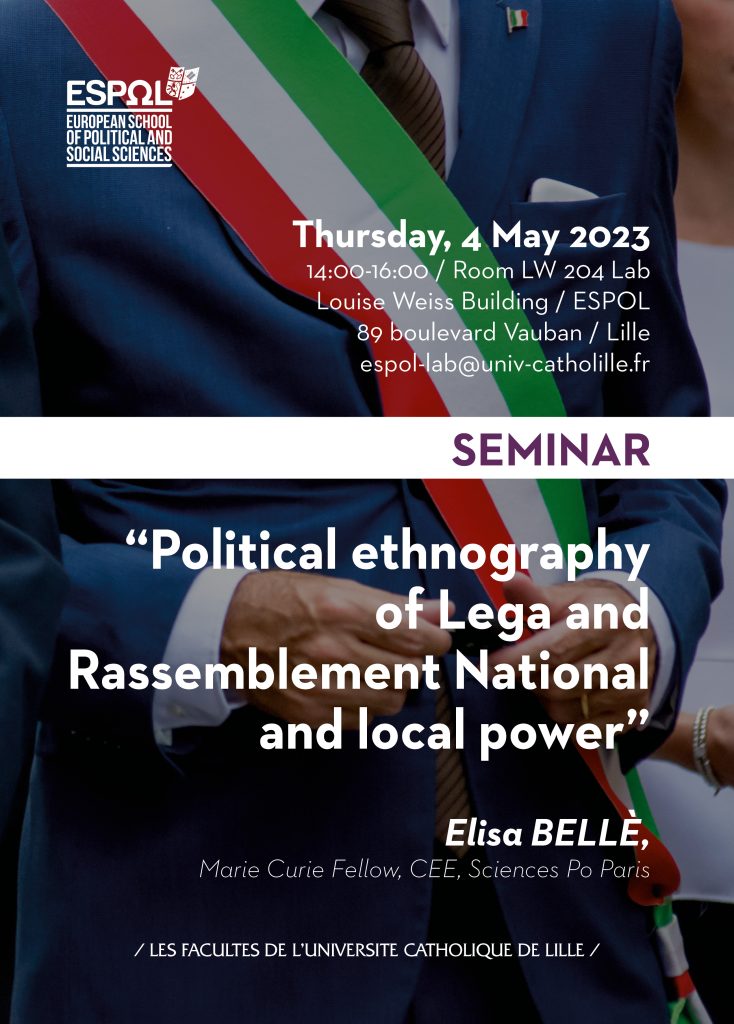[SEMINAR GENERAL] Political ethnography of Lega and Rassemblement National and local power – 4 May 2023
Abstract
The so-called Populist Radical Right (PRR) is probably the most studied political family in political science and sociology. Yet, the literature has mainly focused on electoral dynamics, leaving other relevant dimensions little explored. A major gap concerns PRR’s territorial rooting and diversification (Paxton 2019; Chou 2020), as well as its ability to mobilize center-periphery divides (Hochschild 2016) and community attachments (Fiztgerald 2018), reinforcing its classic nationalist discourse with new localist stances. Secondly, there is an urgent need of more experimental and interdisciplinary analysis of the socio-political processes behind the growth of PRR across societies (Dodd, Lamont, Savage 2017), which are often accompanied by high levels of conflict and polarization between PRR’s partisans and opponents (Hofmann, Altreiter, Flecker, Schindler, and Simsa 2021; Vüllers and Hellemeier, 2022).
In my contribution, I deal with these crucial, yet overlooked topics, focusing on two major PRR European parties, the Italian Lega and the French Rassemblement national. Basing on an innovative mix of ethnographic immersion and comparison, I analyze their access to administrative power in two medium-sized cities, located in two regions of historical rootedness (Lombardia in Italy and PACA in France). Crossing the disciplinary borders between political science and sociology, I shed light on the local dynamics of conflict, countermobilization and polarization between the two parties and their main civic opponents, answering the following questions: How do the parties manage their new power position, once elected? Which are the main conflicts generated by their local governance? And which are the social actors and repertoires of action mobilized by these conflicts?
In order to obtain a thick description (Geertz 1973) of the public and political local life of the cities, I conducted 6 months of ethnographic fieldwork in each of them, mixing diverse data collection techniques: participant observation of the main public and political events; 35 in depth interviews with party’s militants, leaders, and elected in the two local administrations; 25 in-depth interviews with influential members of local civic organizations that, in different ways and with different goals, oppose to the two parties in power.
Elisa Bellè is Marie Curie Fellow at the Centre d’études européennes, Sciences Po Paris

